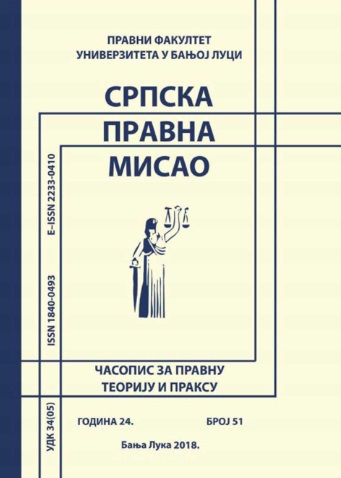BOSNIA AND HERZEGOVINA AND THE EUROPEAN UNION INTEGRATION PROCESS
DOI:
https://doi.org/10.7251/SPMSR1851189SAbstract
Developed economies in the world are characterized by a very dynamic structure of change, both in production and in the market position of individual countries. Economic developments in the world were accompanied by a faster growth of world trade than the growth of production. Therefore, each country strives to find its place in the international division of labor and a satisfactory market position, although the dominance of industrially developed countries is not questioned. In the conditions of contemporary market and technological changes, it is difficult to imagine the integration process in terms of globalization without a more active role of developed countries. Diplomacy plays a significant role in the integration of the economic territories of individual countries. Its importance is of particular importance to economic, and now also political integration in Europe, ie the European Union. Bosnia and Herzegovina has a political and economic interest in joining the European Union, so it is
has already started using European Union funds according to programs based on the Framework Agreement between the European Union and Bosnia and Herzegovina. Funds according to the programs can be used by institutions, citizens and businessmen. Writing a good economic development project is all about craft. The methodology that was adopted in the EU in the 90s of the last century is based on the methodology used by the Americans in the 60s of the last century, the basis of which was the analysis of the logical framework or logical matrix. The investment of funds from the European Union funds is intended to create a competitive economy of BiH for the Single (internal) market of the European Union. However, economic cooperation is only one and the "first pillar" of the European integration process. A significant step in the development of foreign policy cooperation and security was achieved in the Maastricht Treaty with the introduction of the "second pillar" within the European Union. Therefore, the Maastricht Treaty added a security segment to foreign policy, which the member states are obliged to actively and unreservedly support. The foreign policy and security of the EU member states cannot be at the appropriate level unless internal security is established in each state. That is why it is important to establish appropriate judicial cooperation and cooperation between the police, i.e. the creation of the European judicial area. In this way, the "third pillar" of cooperation in the field of law and internal affairs was created.
Downloads
Published
Issue
Section
License

This work is licensed under a Creative Commons Attribution-NonCommercial-NoDerivatives 4.0 International License.



